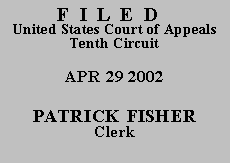

| UNITES STATES OF AMERICA, |
94-CR-10123-02-MLB, 94-CR-10128-02-MLB)
|
Mr. Kayarath was convicted and sentenced in two criminal cases arising from the same event -- a 1994 robbery and murder by a group of five individuals at a restaurant in Wichita, Kansas. In one case, Mr. Kayarath pled guilty to two counts of robbery in violation of 18 U.S.C. § 1951, and two counts of carrying or using a firearm during and in relation to a crime of violence in violation of 18 U.S.C. § 924(c). He received a sentence of 330 months, which was later reduced to 240 months by the district court. United States v. Kayarath, 1997 WL 755402 *1, 131 F.3d 152 (10th Cir. Dec. 8, 1997) (unpublished) (discussing procedure). Mr. Kayarath unsuccessfully appealed his conviction asserting that his guilty pleas were not voluntarily, knowingly and intelligently entered. United States v. Kayarath, 1998 WL 756807, 162 F.3d 1174 (10th Cir. Oct. 21, 1998) (unpublished).
In the other case, Mr. Kayarath was indicted in 1995 of robbery in violation of 18 U.S.C. § 1951 and carrying and using a firearm during the course thereof causing the death of a person, by murder, through the use of a firearm, in violation of 18 U.S.C. §§ 924(c)(1) and 924(j)(1) and 18 U.S.C. § 2. In 1997, he was convicted by a jury on both counts and was sentenced to 240 months imprisonment on the robbery charge and life imprisonment on the murder charge. His conviction and sentence were affirmed on appeal. United States v. Kayarath, 1998 WL 327682, 149 F.3d 1192 (10th Cir. June 19, 1998) (unpublished). In his § 2255 petition, Mr. Kayarath has raised two issues ostensibly on the authority of Apprendi v. New Jersey, 530 U.S. 466 (2000) : 1) his life sentence is invalid because the indictment charged a violation of 18 U.S.C. § 924(i)(1) which carries only a 10 year sentence, and 2) the federal courts lack subject matter jurisdiction over the place where the robbery and murder occurred. Aplt. Br. at 2. As the district court noted, § 924(i)(1) currently states that, "A person who knowingly violates section 922(u) shall be fined under this title, imprisoned not more than 10 years, or both." 18 U.S.C. § 924(i)(1) (2000). However, in 1995 when the indictment was filed, there were two subsections (i)(1). The first subsection (i)(1) was identical to the current subsection (i)(1). The second subsection (i)(1) stated, "A person who, in the course of a violation of subsection (c), causes the death of a person through the use of a firearm, shall (1) if the killing is a murder (as defined in section 1111), be punished by death or by imprisonment for any term of years or for life; ...." Therefore, for substantially the same reasons given by the district court, we reject Mr. Kayarath's assertion that his life sentence was improper.
As to issue two, Mr. Kayarath asserts that the federal courts lack subject matter jurisdiction because "[t]he place ... where the Appellant's involvement in the tragic death of the proprietor of the Madarine Chinese Restaurant in Wichita, within the boundaries of the City of Wichita, the State of Kansas, was never ceded to the UNITED STATES, a federal corporation, as is required pursuant to the Constitution for the United States of America, 1787, in order for the UNITED STATES, a federal corporation to have jurisdiction and authority thereover." Aplt. Br. at 6. We agree with the district court that this claim is frivolous.
We DENY Mr. Kayarath's request for a COA and DISMISS this appeal.
Entered for the Court
Paul J. Kelly, Jr.
Circuit Judge
*. This order and judgment is not binding precedent, except under the doctrines of law of the case, res judicata, and collateral estoppel. This court generally disfavors the citation of orders and judgments; nevertheless, an order and judgment may be cited under the terms and conditions of 10th Cir. R. 36.3.
2. After examining the briefs and the appellate record, this three-judge panel has determined unanimously that oral argument would not be of material assistance in the determination of this appeal. See Fed. R. App. P. 34(a); 10th Cir. R. 34.1(G). The cause is therefore ordered submitted without oral argument.